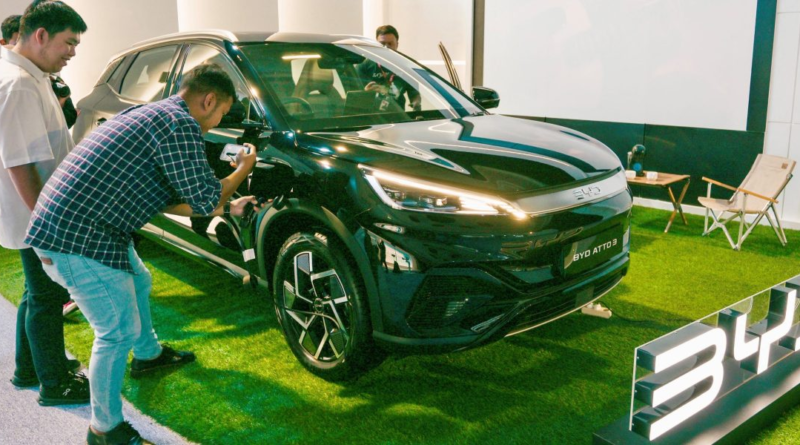BYD launches in Indonesia with new cars and a promised $1.3 billion factory as it continues its march to global EV dominance
BYD is now the world’s largest EV maker, selling more battery-powered cars than Tesla in the final quarter of 2023. Yet most of the sales that took BYD to the top were in China. That may change, as the Warren Buffett-backed company now seeks to break into markets in Europe, Latin America, and Southeast Asia.
The Chinese car company has now chosen its next target: Indonesia, Southeast Asia’s largest economy. On Thursday, the company launched three passenger models—the Seal sedan, the Atto 3 SUV, and the Dolphin hatchback—in Jakarta.
“We are delighted to gather here at the beginning of 2024 to officially launch BYD Passenger in Indonesia,” said Liu Xueliang, general manager of BYD Asia-Pacific, according to the Jakarta Globe.
BYD will also invest $1.3 billion to build an electric vehicle factory in Indonesia, adding to a growing list of plants outside of China. The company is investing in production facilities in Hungary and Thailand, and is reportedly eyeing factories in Mexico as a launching point for the U.S. market.
Indonesia’s Coordinating Minister of Economic Affairs, Airlangga Hartarto, claimed the new Indonesia factory would eventually have a production capacity of 150,000 vehicles. BYD’s president for Indonesia, Eagle Zhao, said the company would “accelerate the construction of a manufacturing plant in Indonesia starting this year,” but declined to give further details.
BYD declined to provide further details to Fortune.
President Joko Widodo, popularly known as Jokowi, is trying to position the Southeast Asian country as an EV manufacturing hub. The country sits on huge reserves of nickel, an important component for making the batteries that go into EVs. The metal is also used to make stainless steel.
Indonesia banned the export of raw nickel ore in January 2020 to force investment into value-added exports. Investment has poured into Indonesia’s nickel industry, mostly from Chinese and South Korean sources.
BYD vehicles use lithium-iron-phosphate batteries, which do not use nickel, unlike the standard lithium-ion batteries used in many electric vehicles. Instead, BYD may be hoping to take advantage of Indonesian policy that grants automakers tax breaks on imported EVs, proportionate to their commitment to developing local EV production.
The company dominates its home market of China, overtaking Volkswagen as the country’s best selling auto brand. BYD is also rapidly gaining market share in the passenger EV space in the Southeast Asian countries of Thailand and Singapore, two markets that are warming up to non-internal combustion engine vehicles.
Taking over Indonesia, though, may take longer. Indonesians bought a little over 17,000 battery electric vehicles in 2023, up from around 10,000 in 2022, according to wholesale data from the Indonesian Automotive Industry Association.
But EVs made up just a fraction of the 1.1 million units sold in Indonesia last year. An October report from PwC said the EV market in Indonesia is growing, but is slower than in comparable global markets, due to doubts over the infrastructure to support charging and the cost of owning an EV.




